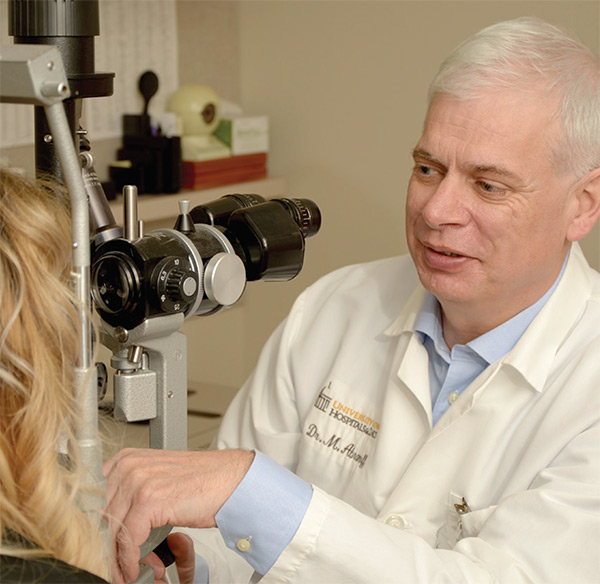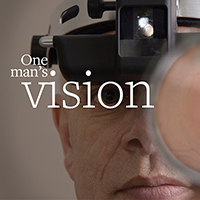Two months after FDA authorization, IDx-DR made its debut at the Diabetes and Endocrinology Center at UI Health Care–Iowa River Landing in Coralville, Iowa. The clinic has approximately 7,200 diabetes and endocrinology patient visits each year. IDx-DR has increased the clinic’s ability and confidence to assess patients for complications of diabetes and refer them to a retinal specialist if needed, says Yumi Imai, MD, UI endocrinologist.
“Among the basic screenings, the eye exam is the major one we couldn’t do by ourselves,” Imai says.
“We ask the patient when was their last eye exam. If it’s been more than one year, and there is no scheduled appointment (with a specialist), now we can offer to do it today, if the patient is willing, using the IDx-DR,” she says. “From the provider side, our work did not change drastically because we have been routinely asking patients if they had an eye exam. Now, instead of writing a referral immediately, we just order IDx-DR.”

Brice Critser, director of diagnostic imaging for the UI Department of Ophthalmology and Visual Sciences and a certified retinal angiographer (CRA), expects AI-driven imaging like IDx-DR to “direct people into specialty clinics like ours to get the level of treatment they need.”
“We won’t need to see hundreds of millions of people (in specialty clinics). There are not enough doctors nor time in the day,” says Critser, a consultant for IDx. “We will see more of the people who need help.”
A retinal photographer for 15 years, Critser says, “You can learn a lot systemically by looking into the eye.”
IDx is building other AI-based diagnostic algorithms for the detection of macular degeneration, glaucoma, Alzheimer’s disease, cardiovascular disease, and stroke risk. The company announced in late September that it had secured $33 million in venture capital funding to accelerate market adoption and further develop additional diagnostic systems for its AI platform.
“The goal is to get these specialty diagnostics into primary care and retail, which is where the patients are,” says Michael Abràmoff, MD, PhD.
 •
•